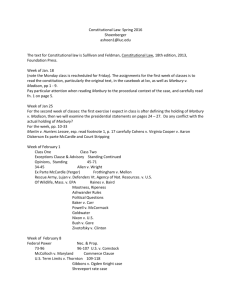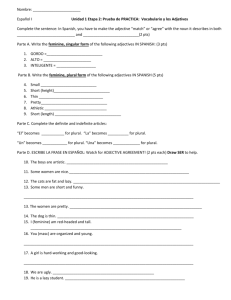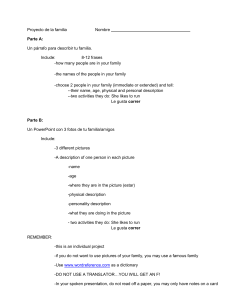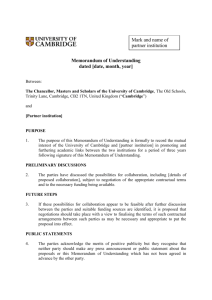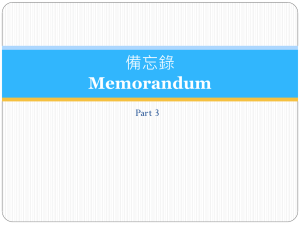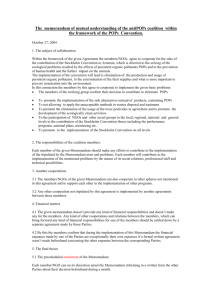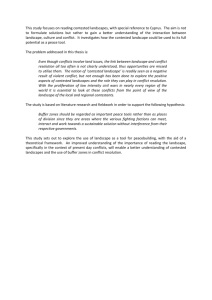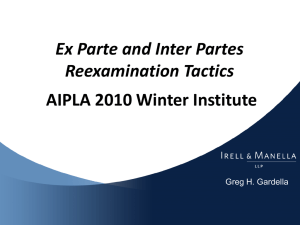Georgia.AG.ex.parte.opinion.3.5.07
advertisement
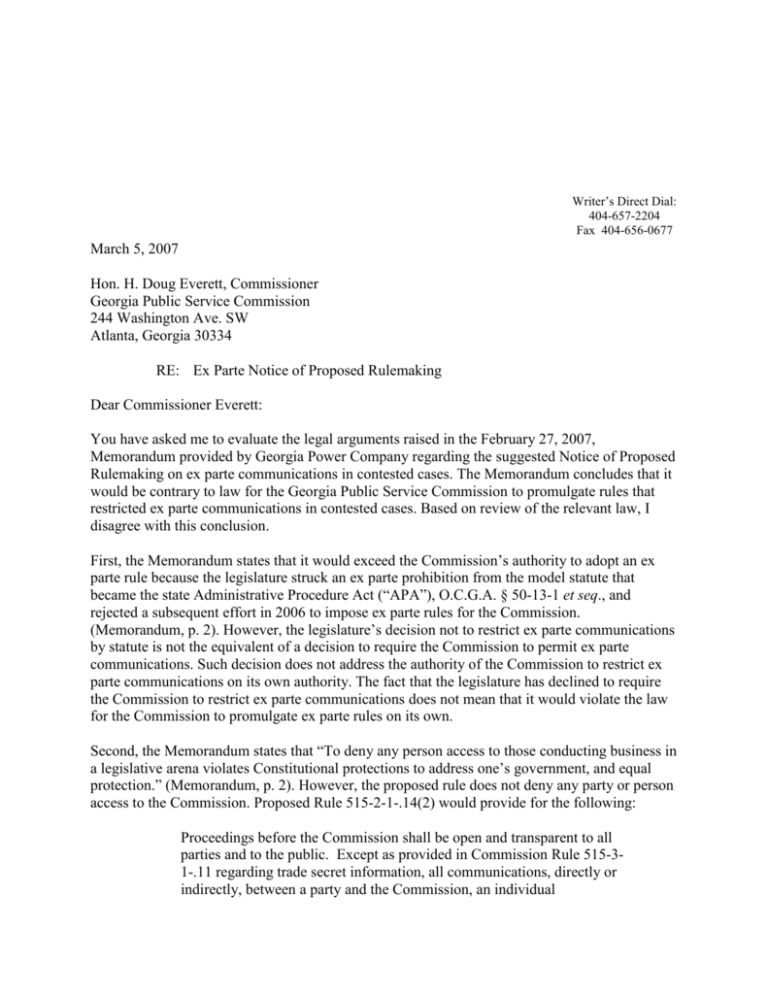
Writer’s Direct Dial: 404-657-2204 Fax 404-656-0677 March 5, 2007 Hon. H. Doug Everett, Commissioner Georgia Public Service Commission 244 Washington Ave. SW Atlanta, Georgia 30334 RE: Ex Parte Notice of Proposed Rulemaking Dear Commissioner Everett: You have asked me to evaluate the legal arguments raised in the February 27, 2007, Memorandum provided by Georgia Power Company regarding the suggested Notice of Proposed Rulemaking on ex parte communications in contested cases. The Memorandum concludes that it would be contrary to law for the Georgia Public Service Commission to promulgate rules that restricted ex parte communications in contested cases. Based on review of the relevant law, I disagree with this conclusion. First, the Memorandum states that it would exceed the Commission’s authority to adopt an ex parte rule because the legislature struck an ex parte prohibition from the model statute that became the state Administrative Procedure Act (“APA”), O.C.G.A. § 50-13-1 et seq., and rejected a subsequent effort in 2006 to impose ex parte rules for the Commission. (Memorandum, p. 2). However, the legislature’s decision not to restrict ex parte communications by statute is not the equivalent of a decision to require the Commission to permit ex parte communications. Such decision does not address the authority of the Commission to restrict ex parte communications on its own authority. The fact that the legislature has declined to require the Commission to restrict ex parte communications does not mean that it would violate the law for the Commission to promulgate ex parte rules on its own. Second, the Memorandum states that “To deny any person access to those conducting business in a legislative arena violates Constitutional protections to address one’s government, and equal protection.” (Memorandum, p. 2). However, the proposed rule does not deny any party or person access to the Commission. Proposed Rule 515-2-1-.14(2) would provide for the following: Proceedings before the Commission shall be open and transparent to all parties and to the public. Except as provided in Commission Rule 515-31-.11 regarding trade secret information, all communications, directly or indirectly, between a party and the Commission, an individual February 12, 2016 Page 2 Commissioner, a Commission hearing officer, or a member of the Commission Advisory Staff relating to a proceeding shall be made in a public and open manner that allows all other parties the opportunity to respond to such communication or information. Copies of all written or electronic communications relating to a proceeding shall be contemporaneously filed with the Executive Secretary and served on all parties. All oral communications relating to a proceeding shall be made at a properly noticed meeting, hearing, or workshop of the Commission. To begin with, this proposed rule would only apply to “proceedings.” The word “proceedings” is defined in the proposed rule to mean “a contested case to be adjudicated, decided, arbitrated, or promulgated by the Commission.” Proposed Rule 515-2-1-.14(1)(c). Thus, the proposed rule would not apply to any matter or docket that would not meet this definition, such as investigatory dockets. In addition, this rule would not deny access to anyone in contested cases; instead, it would merely require that communications by a party be made in “a public and open manner that allows all other parties the opportunity to respond to such communication or information.” The proposed rule addresses the way in which parties must address the Commission, but it does not deny anyone the right to address the Commission. Finally, the proposed rule allows an exception to the requirement that communications be “public and open” in the event of an “emergency.” Proposed Rule 515-2-1-.14(3). In summary, the proposed rule does not restrict access in an unlawful manner. Third, the Memorandum argues that an ex parte rule would “run afoul and interfere with the Commission’s statutorily mandated responsibility.” (Memorandum, p. 3). In support of this position, the Memorandum relies upon O.C.G.A. § 46-2-20(a), which provides that the Commission shall have general supervision over the companies subject to its jurisdiction. Id. However, a rule requiring open and public communication in the limited context of contested cases is not inconsistent with the Commission’s general supervisory authority. In further support of this argument, the Memorandum cites O.C.G.A. § 46-2-20(g), which states that “The commission shall have the power, through any of its members, to make personal visits to the offices and places of business of the companies under its general supervisions for the purpose of examination . . . in order to procure information deemed by the Commissioner necessary to the work of the commission.” This language does not support the Memorandum’s suggestion that the proposed ex parte rule may violate this statutory provision. First, this statutory language authorizes the Commission to gather information. It does not address ex parte communications. Further, the proposed rules would not prohibit a Commissioner from making a personal visit as contemplated in O.C.G.A. § 46-2-20(g); but rather, it may require, in certain instances, that such a visit be noticed in accordance with the proposed rule. In addition, as discussed above, the proposed ex parte rule only applies to contested cases. The proposed rule February 12, 2016 Page 3 does not inhibit ex parte communications in matters or dockets that are not contested cases; therefore, the proposed rule does not eliminate all instances in which a Commissioner may visit the offices and places of business of companies under its general supervision. Moreover, the proposed rule would not interfere with the Commission’s ability to carry out its duties in deciding contested cases. The APA requires that the Commission’s decisions be confined to the record in contested case proceedings. Atlanta Gas Light Company v. Georgia Pub. Serv. Comm’n, 152 Ga. App. 366, 373 (1979). It would not be “necessary to the work of the commission or of value to the public” for an individual Commissioner to consider information obtained outside of the record in deciding a contested case. In fact, such reliance may constitute reversible error in certain circumstances. See Atlanta Gas Light Company, 152 Ga. App. at 373. In addition, the Commission has broad authority to prescribe the rules of procedure and the rules for taking evidence. O.C.G.A. § 46-2-51. Provided that any such rules comply with the APA, it appears that the Commission will have acted within its authority. In my judgment, it would be a lawful exercise of the discretion granted to the Commission under this Code Section to adopt the proposed rule on ex parte communications. Finally, the Memorandum argues that the proposed rule is one sided and unfair because it would “prohibit communications by the utilities, but not its customers who are affected by the proceeding.” (Memorandum, p. 4). The Memorandum contends that this provision would violate “fundamental fairness, equal protection of the law, Constitutional protections of free speech, and the right to petition one’s government.” Id. However, as noted above, the proposed rule does not prohibit a utility in a contested case proceeding from communicating with the Commission. Instead, it requires that communications be made in a public and open manner. I note that the restriction applies with equal force to all other parties to the contested case, and not just to the utility. Proposed Rule 515-2-1-.14(2). The equal protection argument raised in the Memorandum is without merit. The Georgia Constitution provides that “No person shall be denied the equal protection of the laws.” Ga. Const. Art. 1, § 1, ¶ 2. The equal protection provision of the Georgia Constitution is “substantially equivalent” to the equal protection clause of the Fourteenth Amendment to the United States Constitution. Bell v. Austin, 278 Ga. 844 (2005). It is well established that equal protection is denied only if similarly situated persons are treated differently. Id.; City of Calhoun v. North Ga. Elec. Membership Corp., 233 Ga. 759, 770 (1975). Different treatment of different persons does not violate the equal protection clause if there is a reasonable basis for the distinction. Jackson v. Composite State Bd. of Medical Examiners, 256 Ga. 264, 265 (1986). Parties to a contested case proceeding are not similarly situated to non-parties. Non-parties do not have the right to present or respond to evidence on all issues that may be raised in a contested proceeding, they do not have the right to conduct cross-examination of witnesses, they do not have the right to seek review of the final decision, and the Commission’s decision cannot be February 12, 2016 Page 4 based on communications they might make outside of the record. Moreover, party status carries with it the ability to defend any position advanced by the party whether made publicly or not. A non-party lacks this ability, and consequently, any person accepting the views of a non-party must do so with knowledge that no party to the proceeding may be willing to support the position.1 Therefore, it is my conclusion that there is a reasonable basis in support of the different treatment for parties and non-parties in the proposed rule, and that an equal protection challenge would not succeed. In summary, I do not believe that it would be unlawful for the Commission to adopt the proposed ex parte rule. The views expressed in this letter are those of the author and do not necessarily reflect the views of the Attorney General. I hope this response has been of assistance. Sincerely, Daniel S. Walsh Assistant Attorney General cc: All Commissioners Tom Bond, Director of Utilities Sidney R. Barrett Jr., Senior Assistant Attorney General #430313 While it is my conclusion that the proposed rules as drafted do not violate the equal protection clause, this is not to say that an open process should not be followed wherever possible. See, e.g., O.C.G.A. § 50-14-1 et seq. 1
